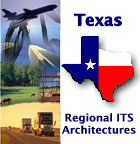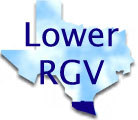| 4.5 | HAZARDOUS MATERIAL INCIDENT RESPONSE |
| 4.5.0 | ITS shall include a Hazardous Materials (HAZMAT) Incident Response (HIR) service. |
| 4.5.1.1 | HIN shall include the capability to provide enforcement and HAZMAT response teams with timely and accurate information on cargo contents when the vehicle is involved in an incident. |
| 4.5.1.2 | HIN shall be capable of providing the following Information : |
| 4.5.1.2(a) | Time of incident. |
| 4.5.1.2(b) | Location of the incident. |
| 4.5.1.2(c) | The material(s) involved. |
| 4.5.3 | HIR shall include a Communications (COMM) function. |
| 4.5.3.1 | COMM shall provide the capability for distress signals to be sent to a focal point. |
| 5.0 | EMERGENCY MANAGEMENT |
| 5.1 | EMERGENCY NOTIFICATION AND PERSONAL SECURITY |
| 5.1.0 | ITS shall include an Emergency Notification and Personal Security (ENPS) function that provides for faster notification when travelers are involved in an incident. |
| 5.1.1 | ENPS shall include a Driver and Personal Security (DPS) function. |
| 5.1.1.1 | DPS shall include an in-vehicle manually initiated distress signal capability to provide a first-alert that an incident has occurred to include the following: |
| 5.1.1.1(a) | Medical services required. |
| 5.1.1.1(b) | Minor property damage only crashes. |
| 5.1.1.1(c) | Breakdowns. |
| 5.1.1.1(d) | Vehicle location. |
| 5.1.1.1(e) | Vehicle identification. |
| 5.1.1.2 | DPS shall include the capability to cancel a previously issued manual request for help. |
| 5.1.1.3 | DPS shall include the capability to send an acknowledge signal to the motorist to indicate that the signal was received and help is on the way. |
| 5.1.1.4 | DPS shall include the capability for in-vehicle sensors to automatically detect vehicle problems and in certain cases, automatically send the appropriate distress signal. |
| 5.1.2 | ENPS shall include an Automated Collision Notification (ACN) function. |
| 5.1.2.1 | ACN shall provide the capability to automatically identify that a collision has occurred. |
| 5.1.2.1.1 | ACN shall provide the capability to instantly transmit information about the occurrence of a collision. |
| 5.1.2.1.2 | The ACN crash sensors shall include the capability to provide information about the extent of crash damage. |
| 5.1.2.2 | When sending notification of a collision ACN shall send pertinent information about the collision including the following: |
| 5.1.2.2(a) | That vehicle has been in a collision. |
| 5.1.2.2(b) | Accurate vehicle location. |
| 5.1.2.2(c) | Severity of collision and/or injuries. |
| 5.2 | EMERGENCY VEHICLE MANAGEMENT |
| 8.0 | MAINTENANCE AND CONSTRUCTION MANAGEMENT |
| 8.1 | MAINTENANCE AND CONSTRUCTION OPERATIONS |
| 8.1.1 | Maintenance and Construction Operations shall provide a Maintenance Vehicle Fleet Management (MVFM) function to schedule and dispatch, monitor and track location, and monitor operational condition and maintenance requirements of public and contracted fleets of maintenance, construction, and specialized service vehicles. This function includes interactions among Traffic Managers, Supervisors, Dispatchers, Field Crews, Construction Crews, Vehicle Maintenance Crews, Equipment Maintenance Crews, Weather Services Organizations, and Information Service Providers. |
| 8.1.1.6 | MVFM shall be capable of providing dispatchers and operators of maintenance, construction, and specialized service vehicles with information regarding potential and actual roadway problems. |
| 8.1.1.6.1 | MVFM shall provide information to dispatchers and vehicle operators, including but not limited to: |
| 8.1.1.6.1(b) | Incidents |
| 8.1.4 | Maintenance and Construction Operations shall provide a Roadway Maintenance Conditions and Work Plan Dissemination (RMCWPD) function to provide Intra- and Inter-agency coordination of work plans. This function includes interactions among Traffic Managers, Supervisors, Planning Agencies, Public Safety Organizations, and Information Service Providers. |
| 8.1.4.3 | RMCWPD shall coordinate information with other transportation agencies, including but not limited to: |
| 8.1.4.3(a) | Public Safety |
| 8.1.4.3(b) | Emergency Medical Management |
| | |












 Web Spinner Technology.
Web Spinner Technology.